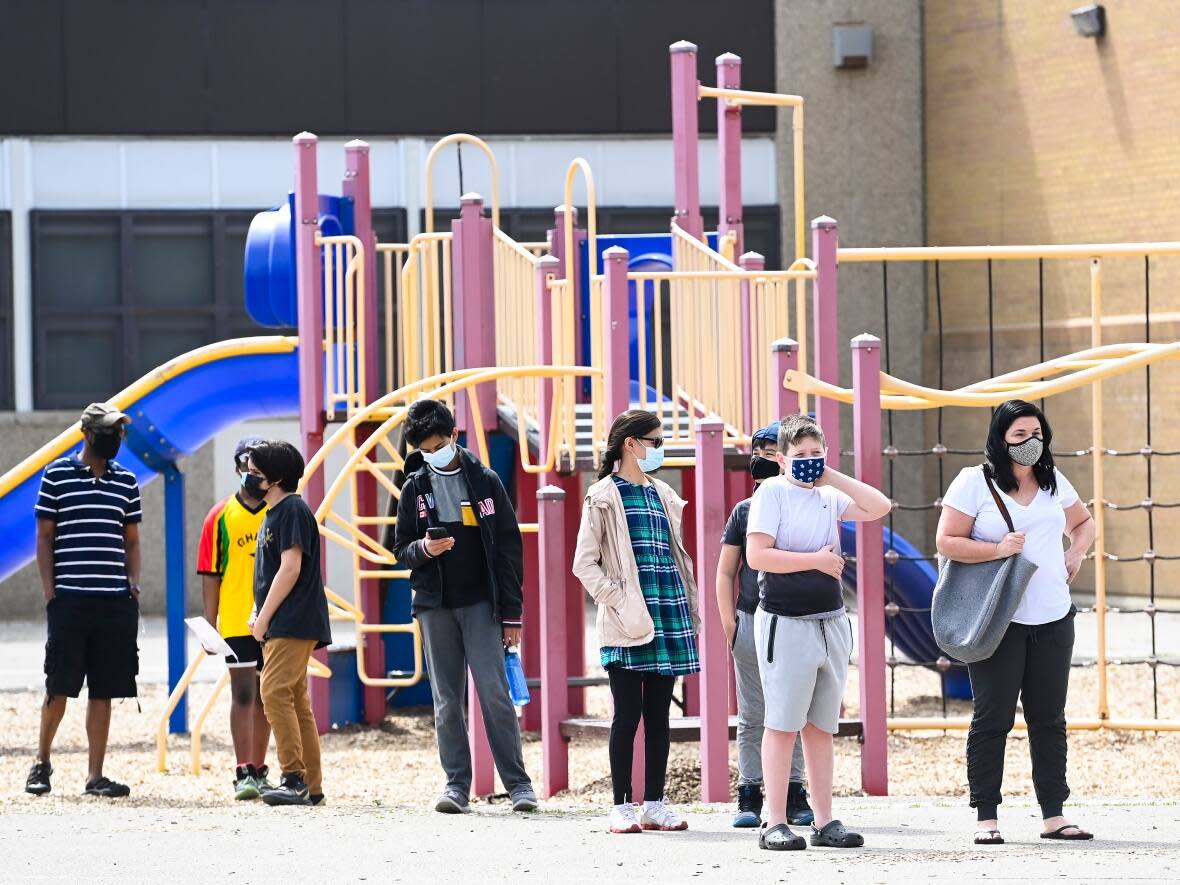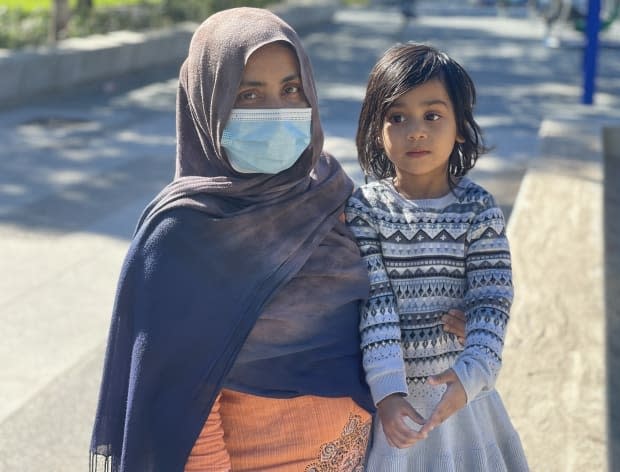Toronto parents watch closely as Health Canada considers COVID-19 vaccine for young children

As Canada's health regulator considers approving the first COVID-19 vaccine for younger children, many Toronto parents are confronting the choice of whether to roll up their kids' sleeves and get them immunized when the time comes.
Vaccine maker Pfizer and its partner BioNTech recently asked Health Canada to authorize a pediatric version of its mRNA COVID-19 vaccine for children aged five to 11. If given the green light, the shot would be the first offered to the millions of children under the age of 11 across Canada who are currently unvaccinated.
Arafat Jahan Bashar said she would get both her daughters, aged three and six, immunized if the vaccine is deemed safe and effective for their age groups.
"If there are no side effects, if it protects her, definitely," said Bashar. "If the younger kids get some kind of protection against this virus, I think it's a good thing."

The Pfizer-BioNTech vaccine, which is already authorized for those 12 and up, has been shown to lead to a strong immune response in school-aged kids, according to a clinical trial of more than 2,200 participants, the companies said last month in a news release. The doses for children aged 5 to 11 are about one-third the size given to adults and kids age 12 and up.
But not all parents are fully convinced that getting vaccinated right away is the appropriate choice for their children.
Grace Salazar, mother of a two-year-old and a six-year-old, said she worries about her kids experiencing side effects.
"I am concerned for the kids [and] what they feel if they have a vaccine," said Salazar.
Common side effects of COVID-19 vaccines include soreness at the site of injection, headaches, nausea and fever, according to the Public Health Agency of Canada (PHAC). These tend to be temporary and experts say the end result of protection against COVID-19 is worth the discomfort.
PHAC has noted over 800 incidents of myocarditis, an inflammation of the heart muscle, among people who received an mRNA vaccine like Pfizer-BioNTech and Moderna, particularly among young men and adolescents. But it's a very rare side effect that can be treated with anti-inflammatory medication, according to Dr. Anna Banerji, a pediatrician and infectious disease specialist at the University of Toronto's Dalla Lana School of Public Health.
Vaccinating children could bring 'end to this' pandemic: expert
Banerji said the approval of a vaccine for young children would be "hugely significant" because they represent the largest group of unvaccinated people who spend time in congregate settings while at school.
Children under the age of 11 make up about 15 per cent of all those who have tested positive for COVID-19 in Toronto since the fourth wave began in early July, according to data from Toronto Public Health, which is double the proportion during the previous three waves.
But school-aged children continue to experience a lower risk of severe disease, hospitalization and death.
Only one person under the age of 18 has died because of complications caused by COVID-19 in the city since the beginning of the pandemic.
During the fourth wave, eight children 11 and younger have been hospitalized due to COVID-19, one of whom was treated in an intensive care unit. By comparison, 149 people between the ages of 50 to 69 have been hospitalized during the same time, 40 of whom needed intensive care treatment.

Despite this lower risk, Banerji said vaccinating kids will not only protect them from the most serious symptoms of COVID-19, but also reduce the risk of an infected child transmitting the novel coronavirus to classmates or a vulnerable family member.
At a societal level, Banerji said vaccinating children will reduce community spread and bring society closer to reaching herd immunity — the point at which so many people are immune to the virus that it cannot continue to viably spread.
"That means that possibly in the future, instead of having a large fifth wave, that there could be slowly an end to this."


